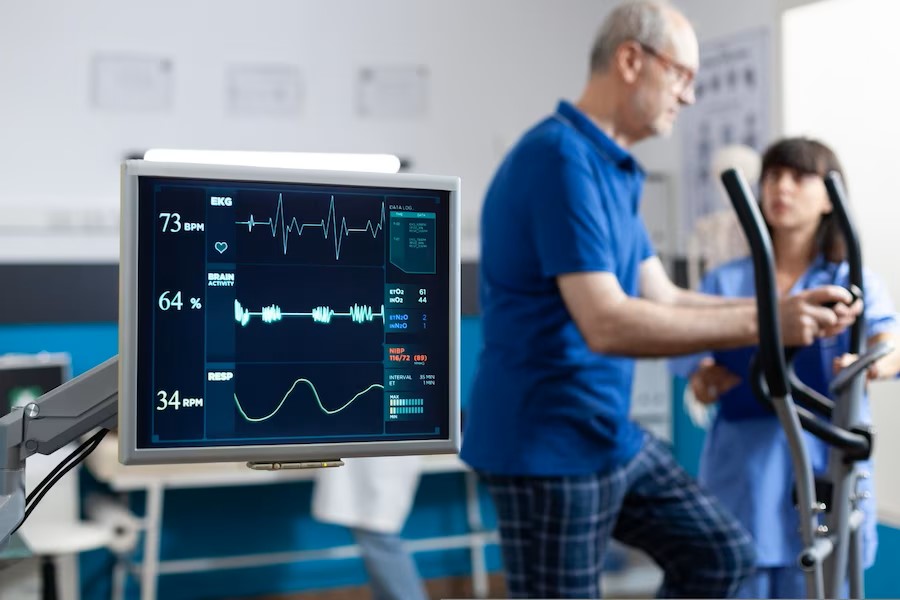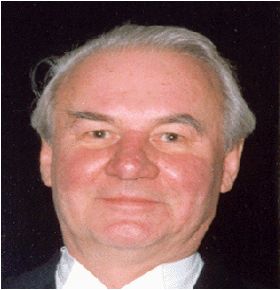EPICARE ECG Reading Center
A Leader in Population Electrocardiography
EPICARE's mission is rooted in scientific excellence, innovation, collaboration, and a commitment to making significant contributions to cardiovascular epidemiology and population electrocardiography.
Our core objectives align with conducting cutting-edge research, promoting evidence-based practices, and collaborating with the global scientific community to make a positive impact on cardiovascular health.
Key elements of our mission include:
✔ Research Excellence
✔ Innovative Technologies
✔ Collaboration and Partnerships
✔ Knowledge Translation

Services
ECG data processing and analysis
Standardization and quality control of ECG recording
Data integration with other research investigative tools
Advanced analytical approaches and artificial intelligence such as deep & machine learning
Training and certification of ECG technicians
Monitoring and reporting ECG alerts in population studies
Equipment & Software
GE MUSE NX Cardiology System
Microsoft SQL Server Enterprise
EPICARE classification program
MATLAB
Python
SAS
Have a question?
ECG Coding
Classification systems used in EPICARE.
Minnesota codes
|
Nova codes
Studies
EPICARE has been the ECG Reading Core for the largest and best-known clinical trials and epidemiologic studies.

Examples of current and past studies
AADHS
African American Diabetes Heart Study
ACCORD
Action to Control Cardiovascular Disease in Diabetics Study
ACCORDION
Action to Control Cardiovascular Disease in Diabetics Study, Follow-up
ARCADIA
AtRial Cardiopathy and Antithrombotic Drugs In Prevention After Cryptogenic Stroke.
ARIC
Atherosclerosis Risk in Communities Study.
ASSESS/AKI
Assessment, Serial Evaluation & Subsequent Sequelae in Acute Kidney Injury
Bogalusa
Bogalusa Heart Study
CACTI
Coronary Artery Calcification in Type 1 Diabetes
CAMACS
The Multicenter AIDS Cohort Study
CARDIA
Coronary Artery Risk Development in Young Adults
CHAGAS
Genetic Aspects of Seropositivity for Chagas Disease
CHAP
Chicago Health and Aging Project
CHAS
Chicago Healthy Aging Study
CHS
Cardiovascular Health Study
CREST
Carotid Revascularization Endarterectomy vs. Stent Trial
CRIC
Chronic Renal Insufficiency Cohort Study
DHS
Diabetes Heart Study
DPPOS & DPP
Diabetes Prevention Program Outcomes Study.
EDIC
Epidemiology of Diabetes Intervention and Complications Study.
GRADE
Glycemia Reduction Approaches in Diabetes: A Comparative Effectiveness Study.
HCHS
Hispanic Community Health Study
Healthy Aging
Northwestern University Healthy Aging Study
Insight START
International Network for Stategic Initiatives in Global HIV Trials
IRAS
Insulin Resistance Atherosclerosis Study
JHS
Jackson Heart Study.
LOOKAHEAD
Action for Health in Diabetes Trial
MESA
MESA Atrial Fibrillation Study
MRFIT
Multiple Risk Factor Intervention Trial
NHANES
National Health and Nutrition Examination Survey
REDS
Chagas Disease Study (Westat)
REGARDS
Reasons for Geographic and Racial Differences in Stroke Study
RURAL
Risk Underlying Rural Areas Longitudinal Study.
SMART
Strategies for Management if Anti-Retroviral Therapy
SPRINT
Systolic Blood Pressure Intervention Trial
St. Jude
St. Jude's Follow-up
TOMHS
Treatment of Mild Hypertension Study
WHI
Women's Health Initiative Study
WIHS
Women's Interagency HIV Study
👉 For other studies click here.
EPICARE Team
EPICARE ECG reading center team
-
 Elsayed Z SolimanVIEW PROFILEMD, MSc, MSProfessor and Director
Elsayed Z SolimanVIEW PROFILEMD, MSc, MSProfessor and Director -
 Oguz AkbilgicVIEW PROFILEPhDAssociate Professor and Associate Director
Oguz AkbilgicVIEW PROFILEPhDAssociate Professor and Associate Director -
 Ibrahim KarabayirVIEW PROFILEPhDAssistant Professor
Ibrahim KarabayirVIEW PROFILEPhDAssistant Professor -
Semseddin Moldibi
 Senior Programmer & Data Manager
Senior Programmer & Data Manager -
Yabing Li
 MDResearch Associate
MDResearch Associate -
Lisa Keasler
 Associate Project Manager
Associate Project Manager -
Kathryn M. Calloway
 Business Administrator
Business Administrator -
Stacey Belton
 Research Administrative Coordinator
Research Administrative Coordinator -
Ronald J Prineas
 MD, PhDDirector 2002 - 2008
MD, PhDDirector 2002 - 2008 -
Pentti M Rautaharju
 MD, PhDFounding Director 1993 - 2001
MD, PhDFounding Director 1993 - 2001
Interns & Scholars
Our History
The origins of the EPICARE Center can be traced back to Dalhousie University, where it functioned for over a quarter of a century under the name of the Heart Disease Research Center. The Center was formed with the support of the Nova Scotia Heart Foundation, and the Dalhousie University Medical School.
In 1990 the Center moved to Edmonton Alberta and was renamed the EPICORE Center. The Alberta Heritage Foundation for Medical Research, the Heart and Stroke Foundation of Alberta, the University of Alberta, and the University of Alberta Hospital supported the evolving center.
The Center found its final resting place at Wake Forest University Medical School, in Winston Salem, North Carolina, and was renamed the EPICARE Center. The center continues the role as an international resource for national health surveys, epidemiological studies and multicenter clinical trials in computer analysis and classification of resting, exercise and ambulatory electrocardiograms.
Through its experience and expertise in ECG analysis, the Center plays a vital role in many aspects of clinical trials, such as the establishment of the incidence of non-fatal endpoints, monitoring trends between treatment groups, detection of adverse effects of cardioactive drugs, and comparative assessment of trends in cardiovascular disease morbidity between contrasting populations. The research arm of the EPICARE Center conducts a broad spectrum of basic and applied research in Electrocardiology dedicated to investigate the evolution of the cardiac excitation and repolarization processes both through the normal lifetime and aging, and through aberrations during various disease conditions.







